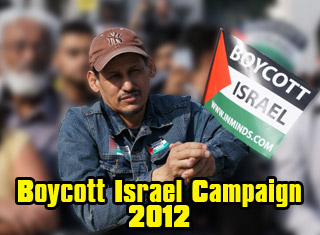
 Innovative Minds © 2014. All Rights Reserved. www.inminds.co.uk | |||||||||||||||
London protest demands freedom for Palestinian hunger strikers as Israel withholds medicine to break strikeinminds Londoners protested outside the Israeli Embassy on Saturday 1st September 2012 demanding freedom for all Palestinian political prisoners as the Palestinian Prisoners Society reported that the clinic at Ramla Prison is withholding needed medication from Palestinian prisoner Ayman Sharawna, on hunger strike for 63 days, until he agrees to end his hunger strike. 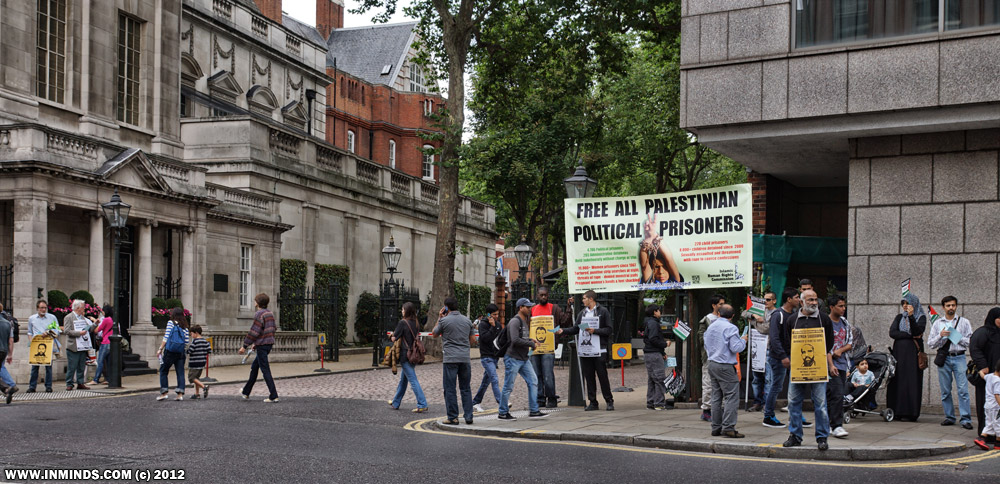 Dozens of protesters picket the approach to the Israeli Embassy (red building - flag visible near centre of photo) which is on a private road. 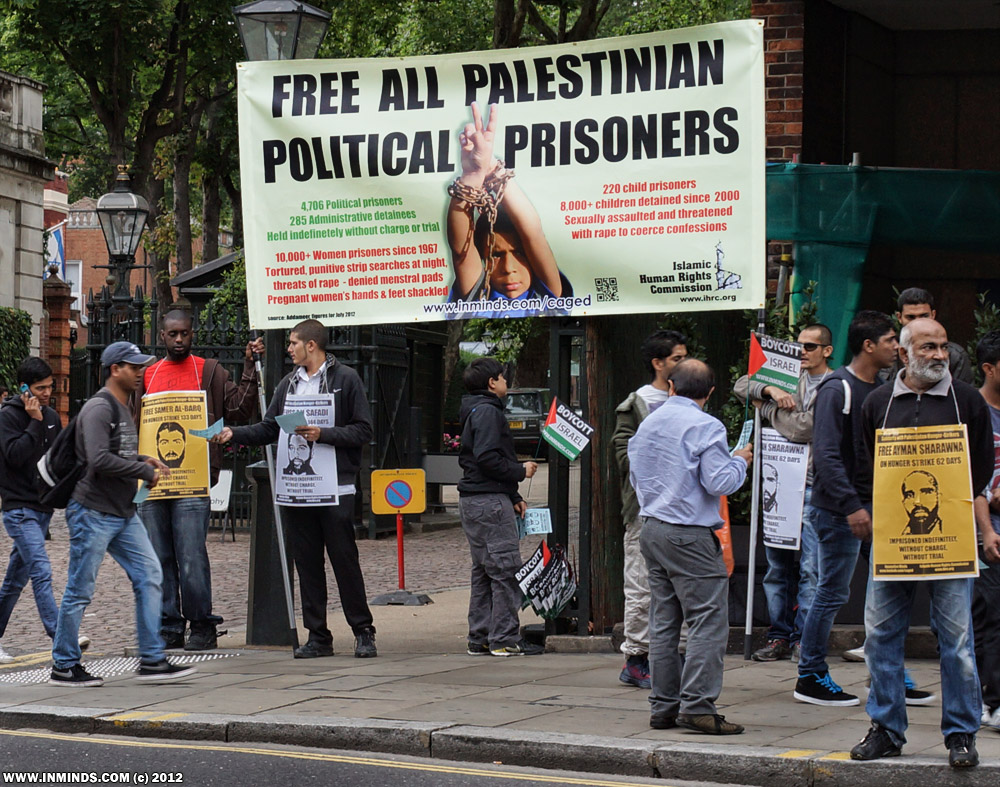 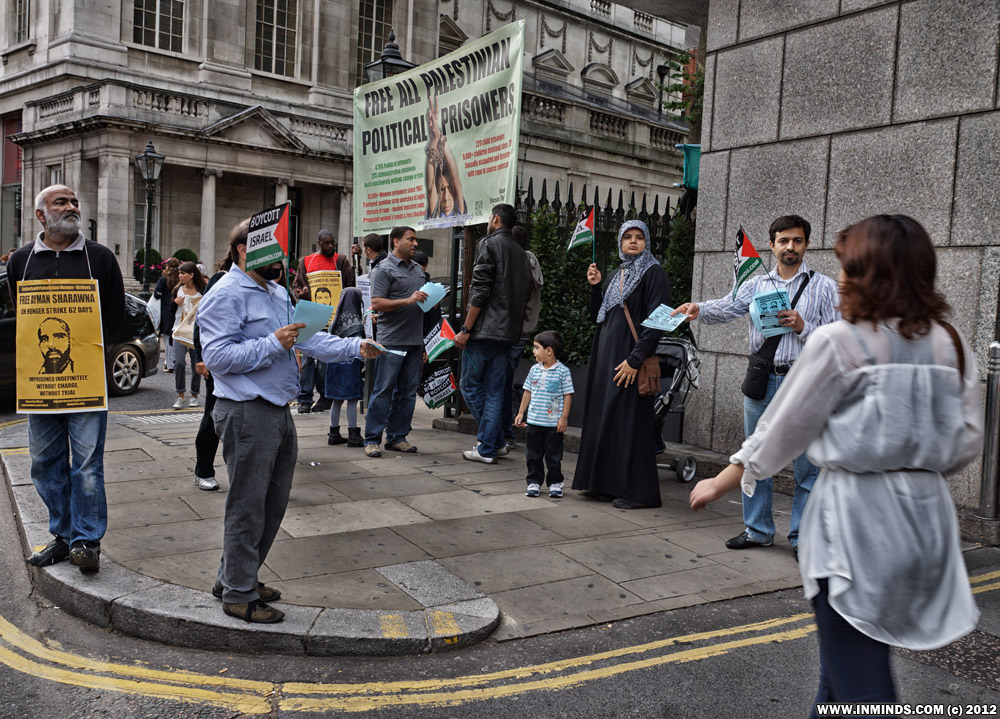 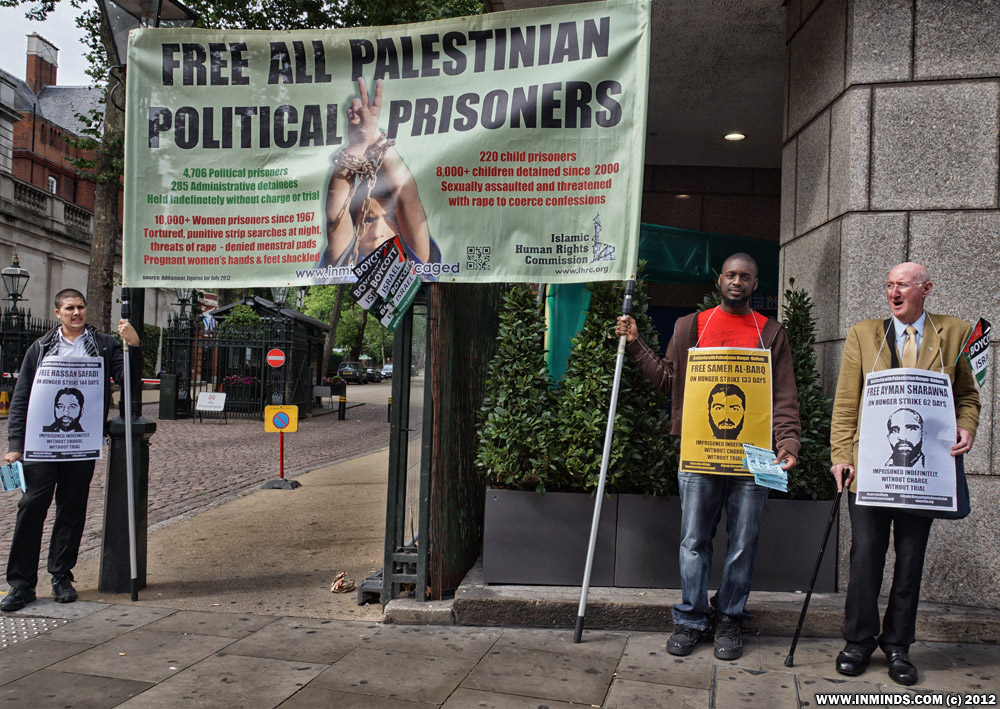 Three hunger strikers - Hassan Safadi - 144 days, Samer Al-Barq - 133 days, and Ayman Sharawna - 62 days
Prison guards again attacked Hassan and Samer smashing Hassan's head on the iron doors of the cell repeatedly until he was unconscious on the floor..
Around two dozen activists picketed the entrance to the private road which houses the Israeli Embassy in Kensington High Street. Their banner read "Free All Palestinian Political Prisoners" and they had placards around their necks dedicated to the remaining three hunger strikers - Samer al-Barq, Hassan Safadi, and Ayman Sharawna who are in critical condition, demanding their immediate freedom. All three have been imprisoned under Israel's infamous 'administrative detention' which means they have not been charged with anything and there is no trial and yet they have been locked up indefinitely on a rolling 6 month prison sentence. Hassan Safadi and Samer al-Barq are both on renewed hunger strikes after Israel broke its deal to release them. They had previously already been on hunger strike for 71 and 30 days. Now Sameer has been on a renewed hunger strike from May 22 - a total of 133 days, and Hassan a total of 144 days. Both men are in critical condition, barely able to stand and use wheelchairs for their daily needs. Amnesty has reported that even at the Medical Centre of the Israel Prison Service Samer and Hassan are being repeatedly beaten and abused. 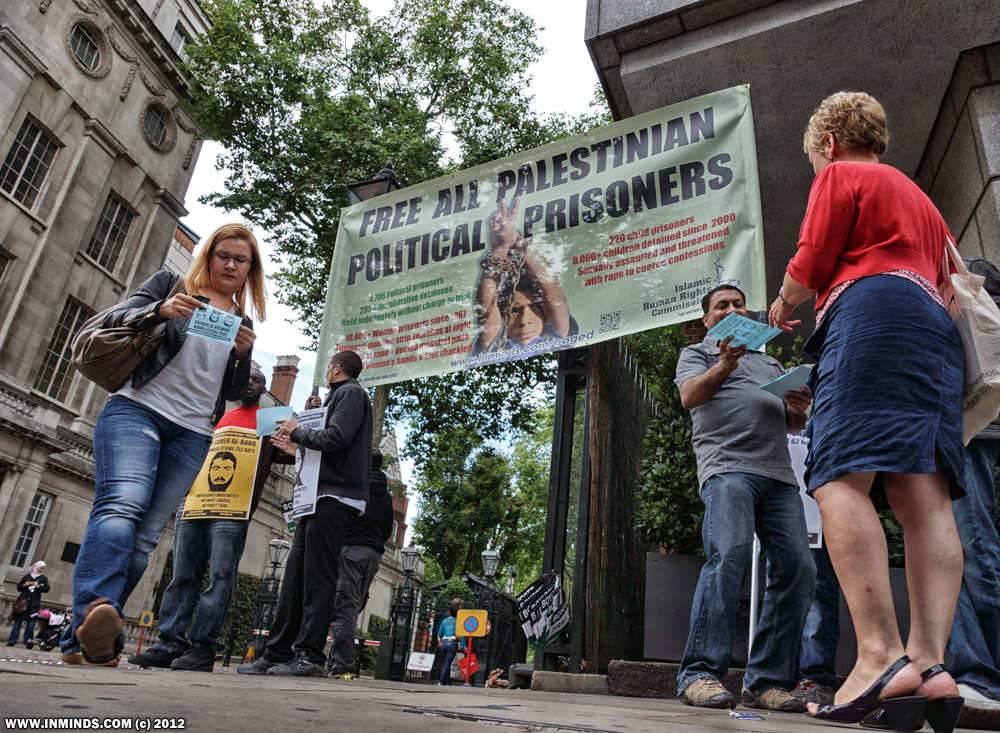 The public were very sympathetic to the campaign with 100s of leaflets being given out in two hours. People seen eager to read even the small print on the leaflets. 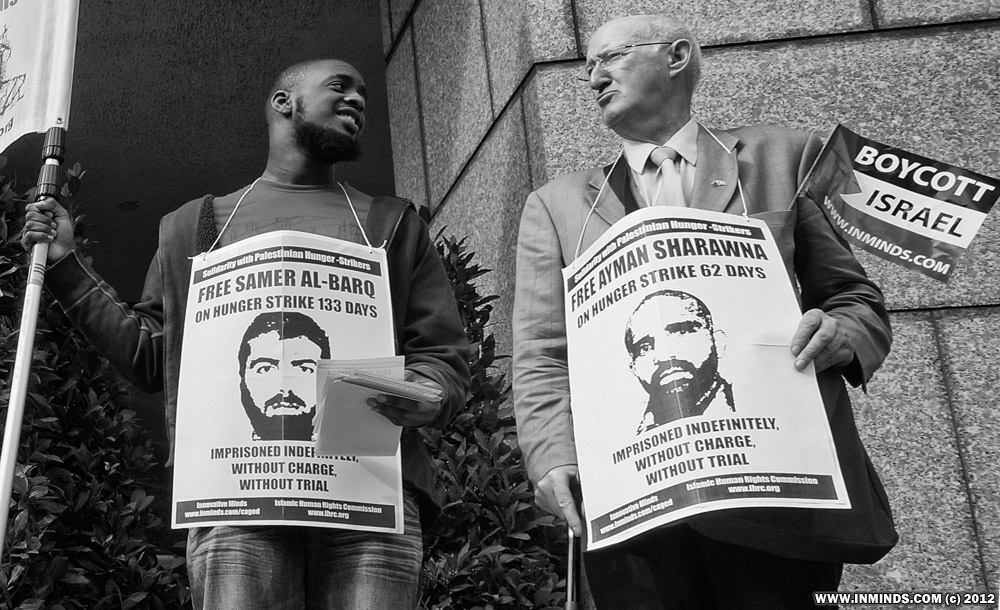 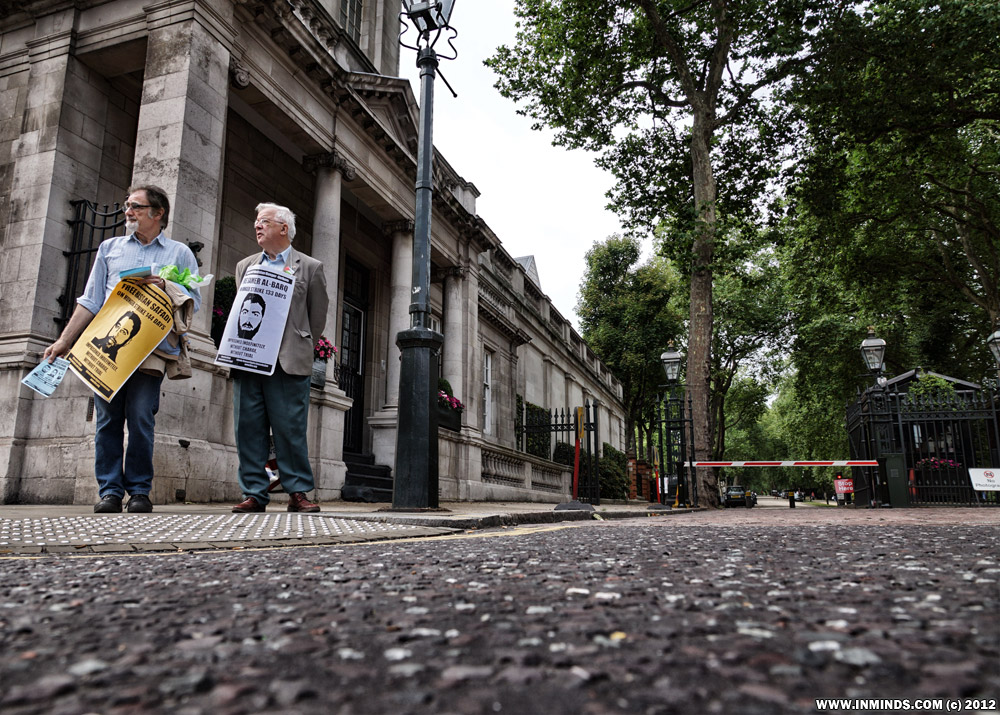 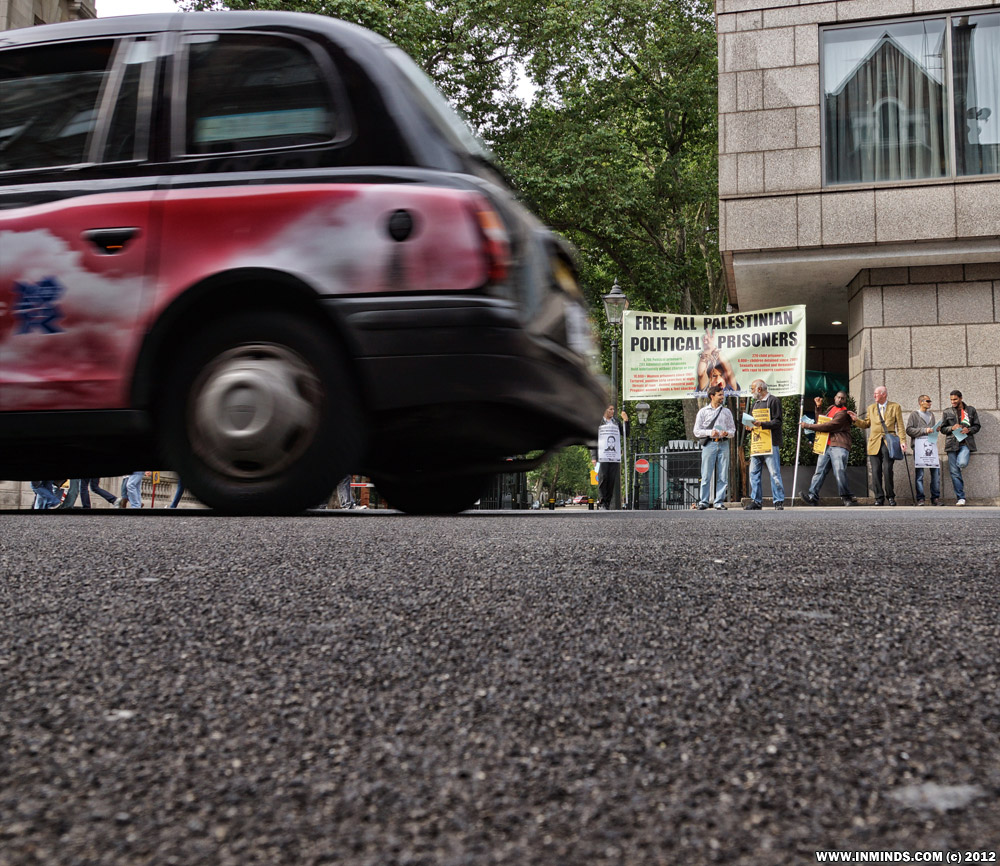
.. even in this condition Hassan was shackled by all four limbs to the hospital bed with four soldiers left in the room to taunt him.
Ayman Sharawna has been on hunger strike 63 days - since 1st July. Ayman was released as part of the prisoner exchange deal in October 2011, only to be re-arrested on 31 January 2012. No charges have been filed against him. Ayman was being held in solitary confinement in Rimon prison before being transferred to Ramleh prison medical center due to the deterioration in his health. Two weeks ago (on Thursday 16th August) that the prison guards again attacked Hassan and Samer smashing Hassan's head on the iron doors of the cell repeatedly until he was unconscious on the floor, they then dragged both prisoners to an isolation cell without any mattresses. To protest this inhuman and degrading treatment Hassan Safadi has announced that he will no longer be drinking water. 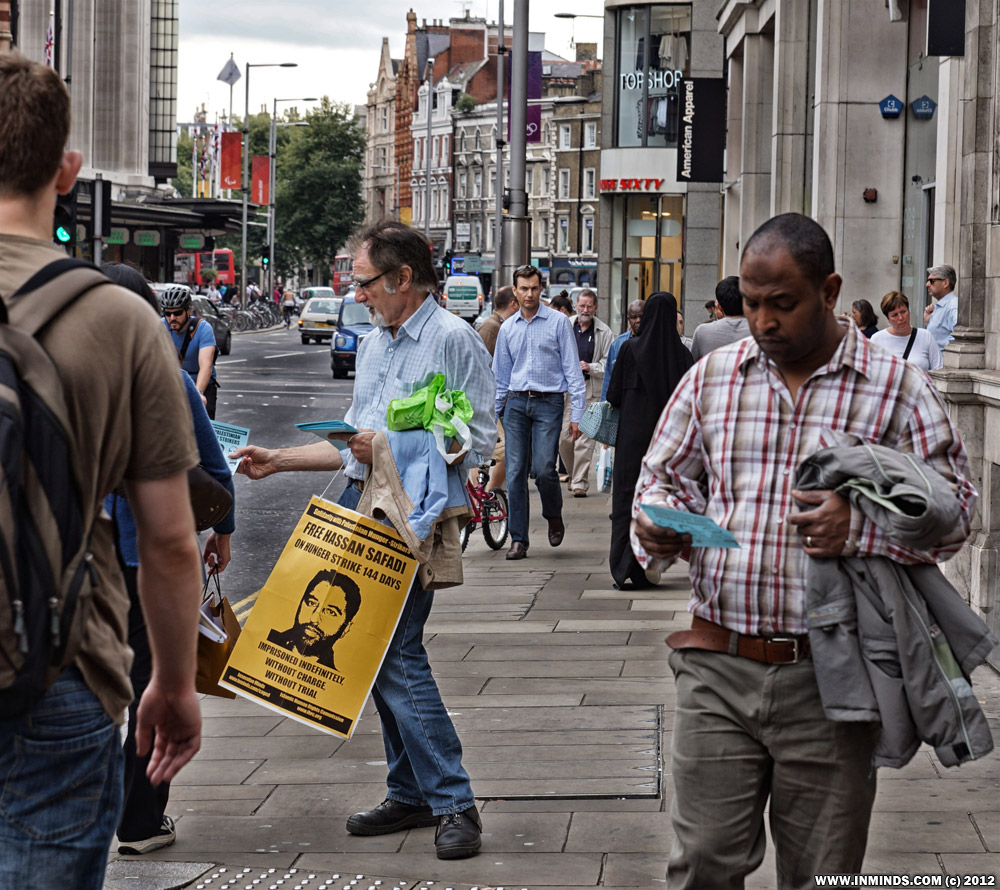 People taking the time to read the leaflet shows how close the issue is to peoples hearts. 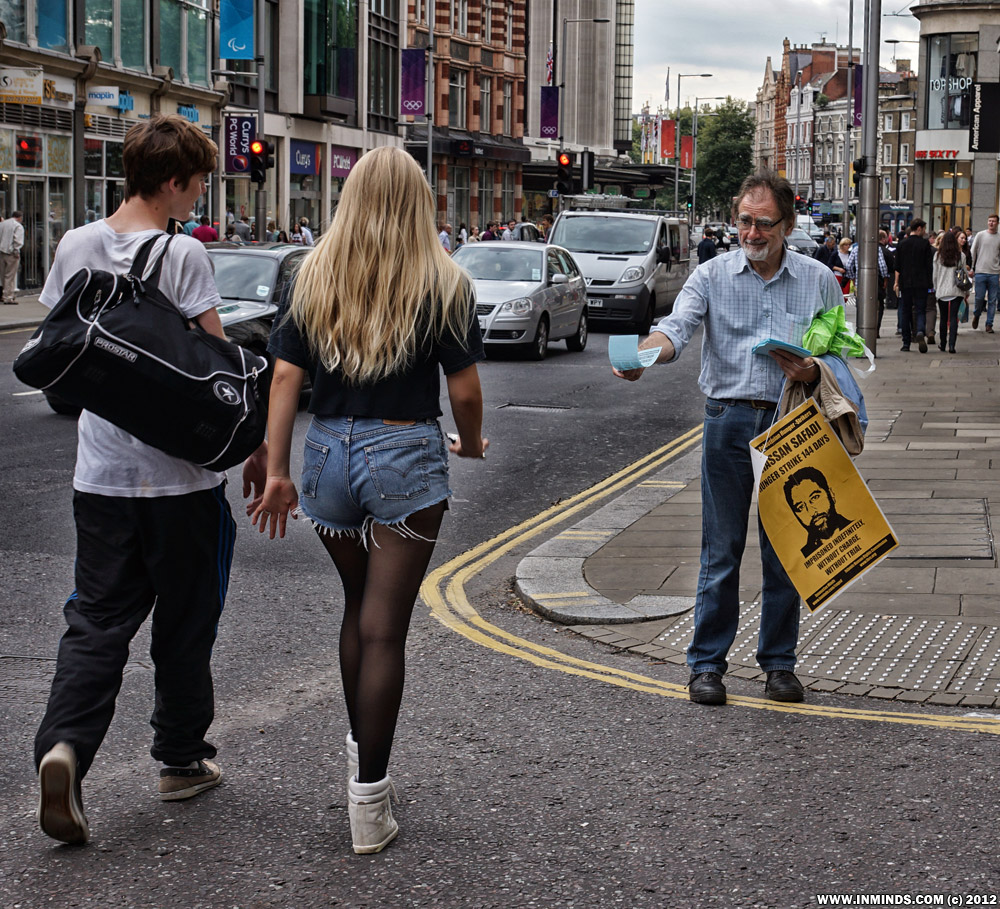 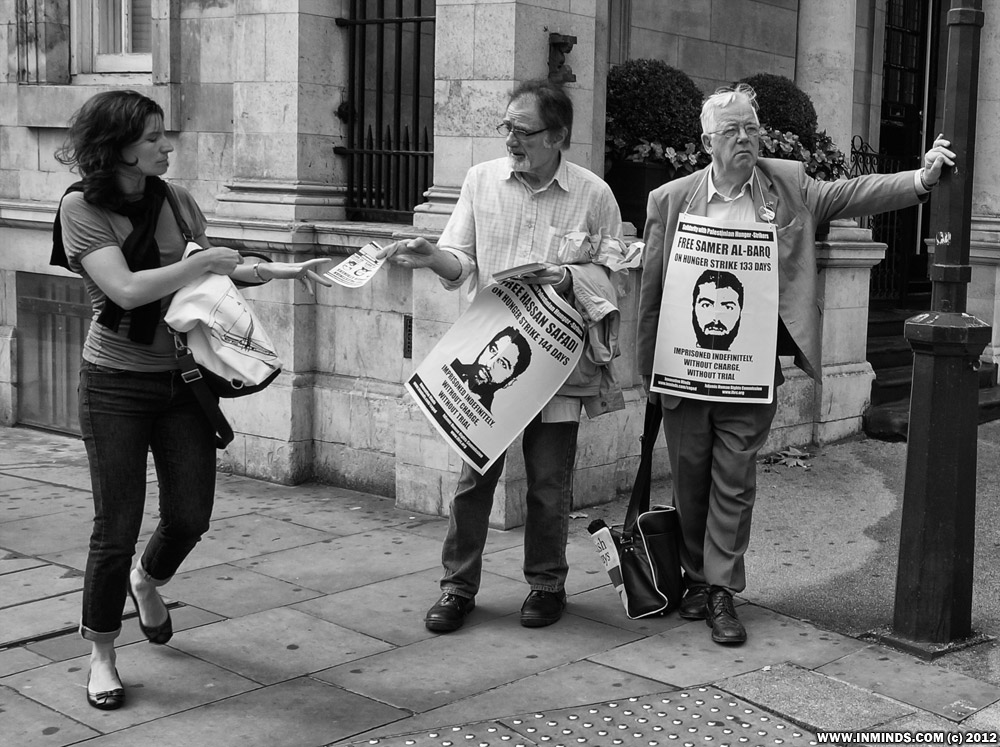 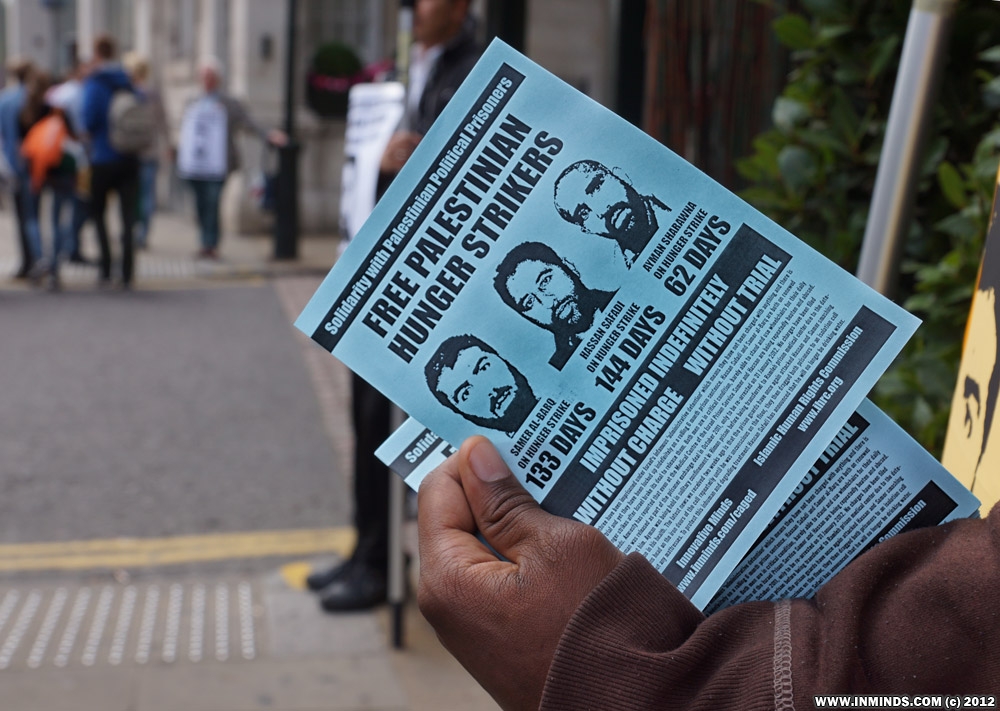 The leaflet focused on the three remaining Palestinian hunger strikers
Israeli doctors are withholding Ayman's needed injections until he agrees to end his hunger strike, using the denial of medicine as a weapon against the prisoners. The pain is so severe that he has been unable to stand on his own since the middle of August.
According to latest news released by Addameer Prisoner Support and Human Rights Association just yesterday (2 Sept 2012) doctors informed the prisoners that their "lives were under immediate threat". Samer is now too weak to even get out of bed. Suffering extreme fatigue Hassan falls unconscious 2-3 times each day. Due to slow heart rate and severe potassium deficiency, Hassan was taken to Assaf Harofeh where tests revealed that his immunity level has fallen dangerously low; there is fluid in his lungs; and he has developed problems in his liver and kidneys. Even in this condition Hassan was shackled by all four limbs to the hospital bed with four soldiers left in the room to taunt him. Prison doctors have informed Ayman that his life is also at risk. In addition to very low immunity levels and cirrhosis in his liver, he suffers from terrible joint pain and back pain from previous chronic conditions. The Israeli Prison Service doctors are withholding his needed injections until he agrees to end his hunger strike, using the denial of medicine as a weapon against the prisoners. The pain is so severe that he has been unable to stand on his own since the middle of August. Ayman is experiencing constant vertigo, severe headaches, high blood pressure and extreme weight loss of about 28 kilos from his original weight. 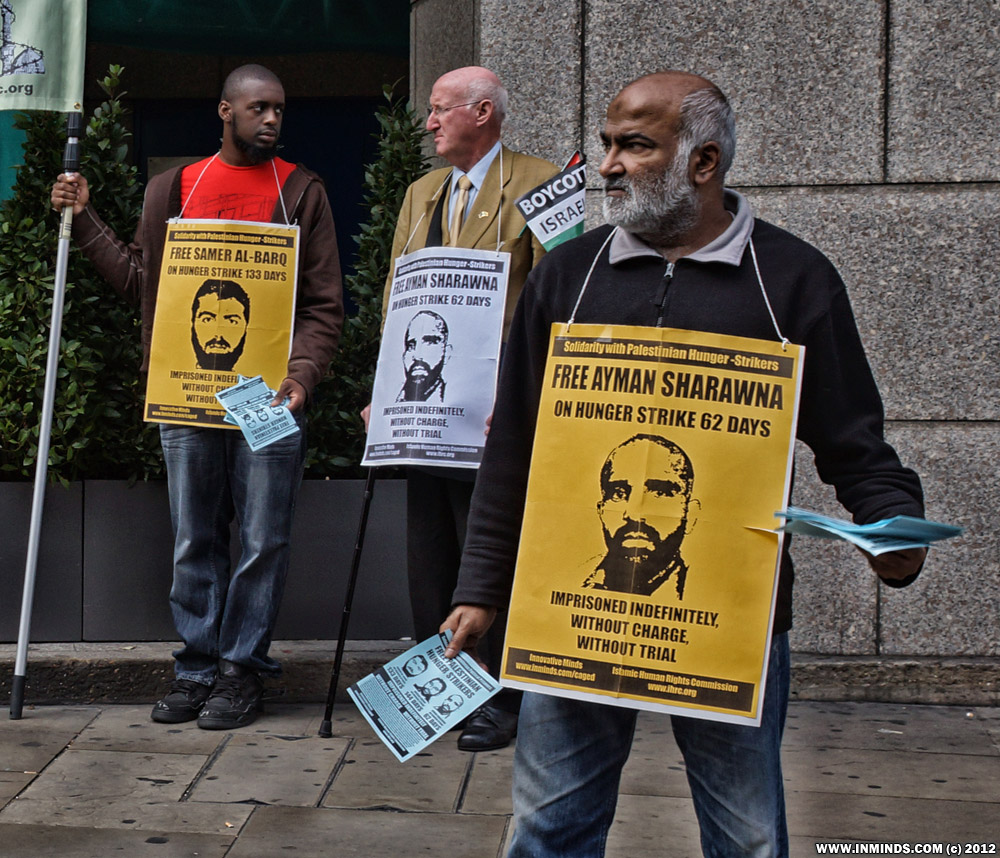 Free Ayman Sharawna 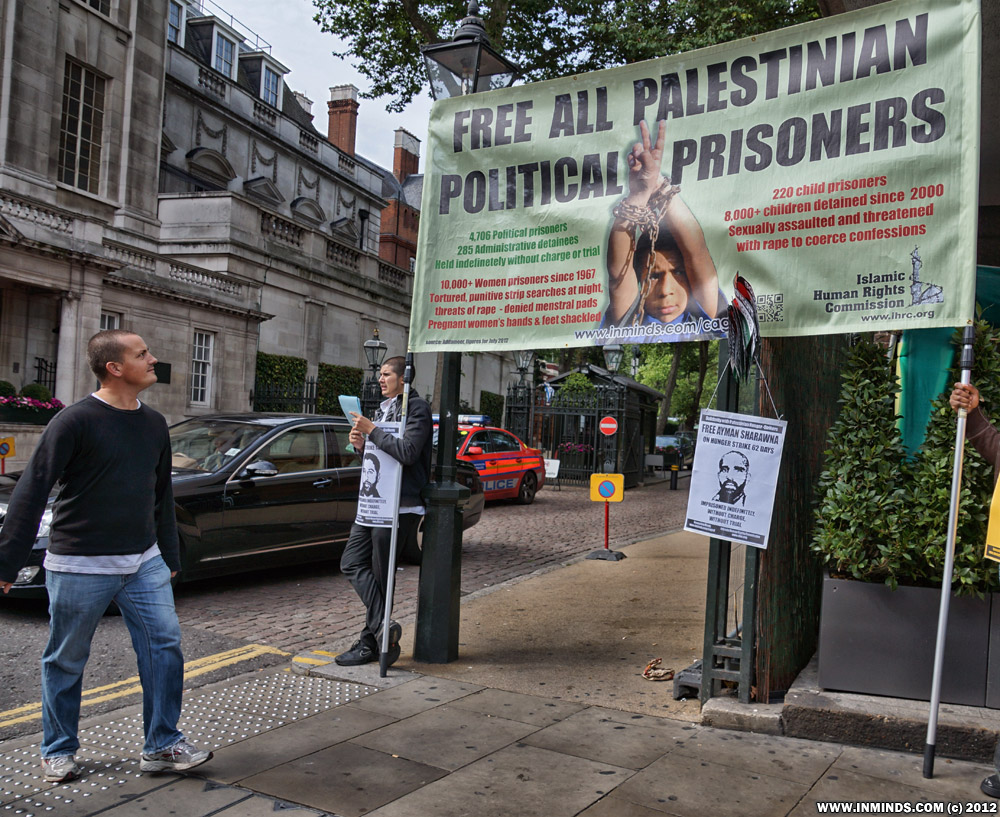 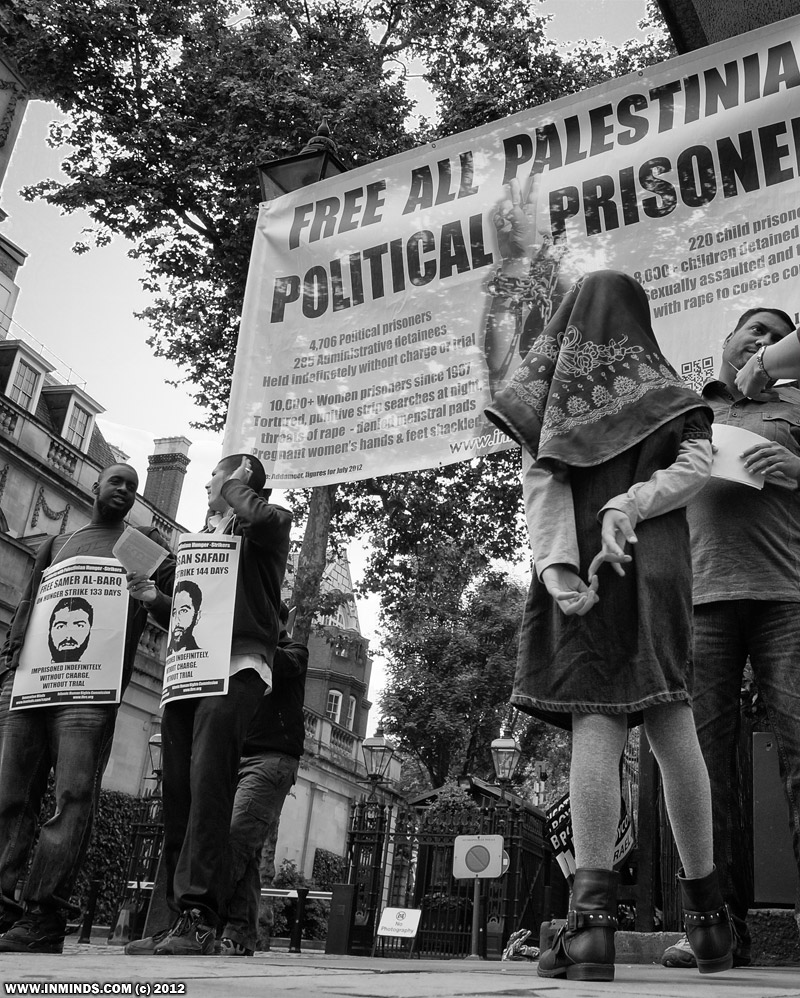 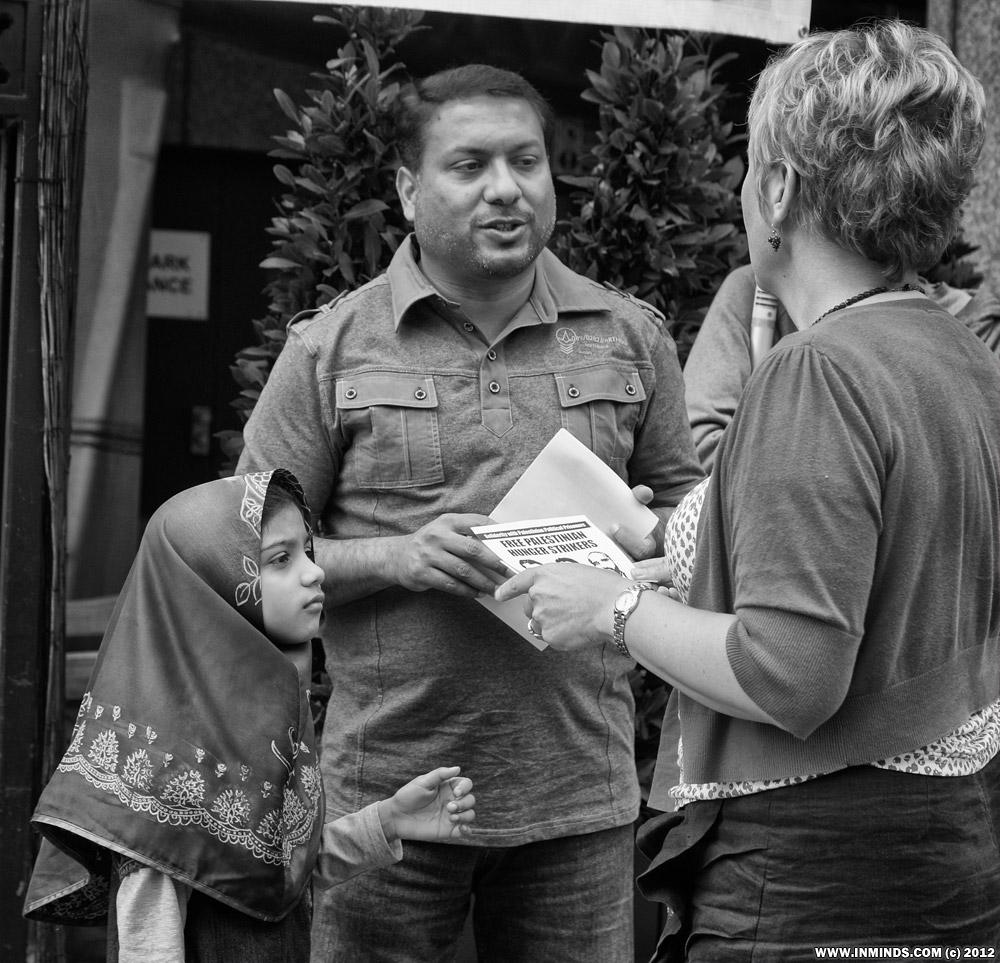
Video courtesy Mr Alex Seymour People willing to take the time to stop for a conversation, to find out more about the plight of Palestinian prisoners. Palestinian flags calling for a boycott of Israel were also unfurled during the protest, the boycott being a practical method everyone can use to exert pressure on Israel. Hundreds of leaflets were given out to a very sympathetic public. Some approached us asking if they could take a boycott Israel flag to hang at home. As with the last protest outside the Israeli Embassy the police took keen interest. At different stages we were approached by three different police teams and private security in charge of the Kensington Palace Gardens for the Crowne Estate which owns the road the Embassy is on. The private security wanted us some distance on the other side of the road away from the Embassy which we refused on principle. The police having a better understanding of the law allowed us to stay at the mouth of the private road in sight of the embassy. Later armed police from outside the embassy approached us to ask questions, despite their big guns and side arms they were polite. Near the end of the protest another officer turned up to ask the same questions. With Israels atrocious record of illegal occupation, ethnic cleansing, massacring civilians and murdering Palestinian children none of the police teams were surprised by the protest but were just there to ask routine questions. The protest was the second one organised by the Palestinian Prisoners Campaign Group which was launched on the occasion of Al Quds Day this year (17 August 2012). The next action will be in a fortnight (14-16th Sept),see the campaign page for more information closer to the date. 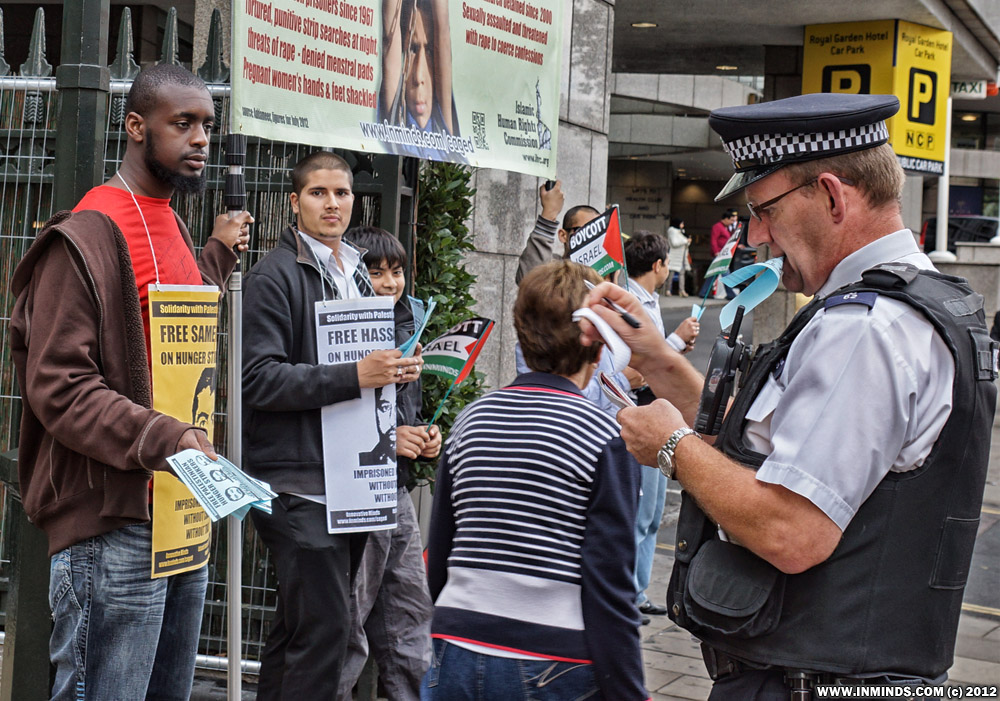 Police.. 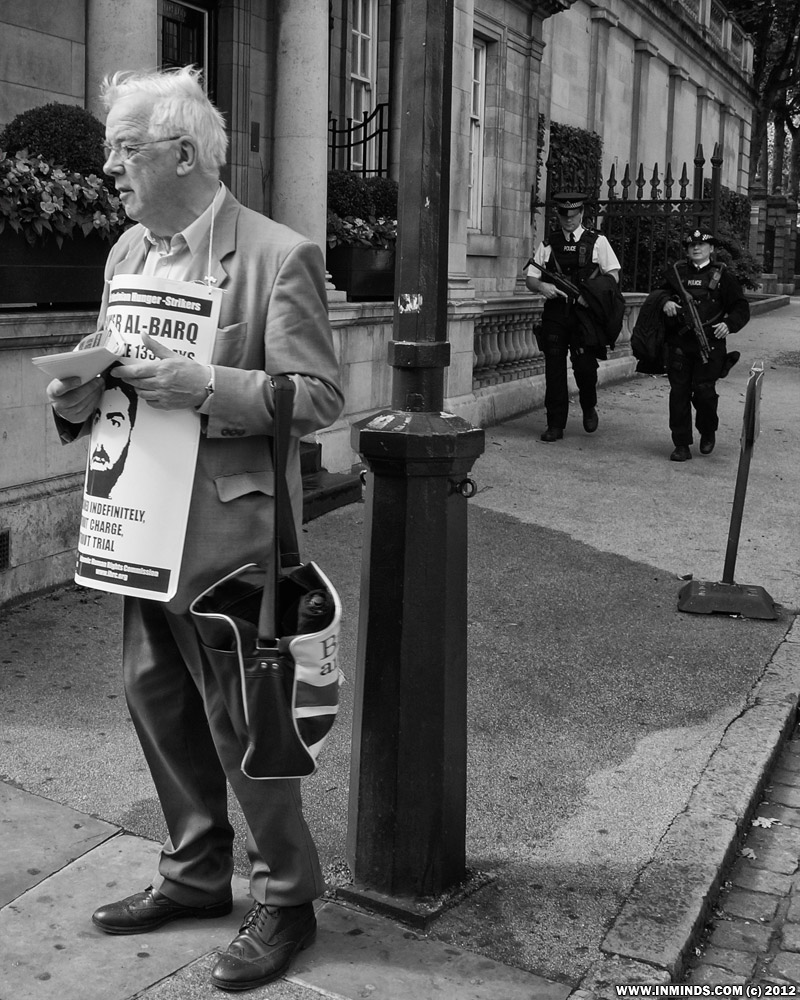 More Police.. 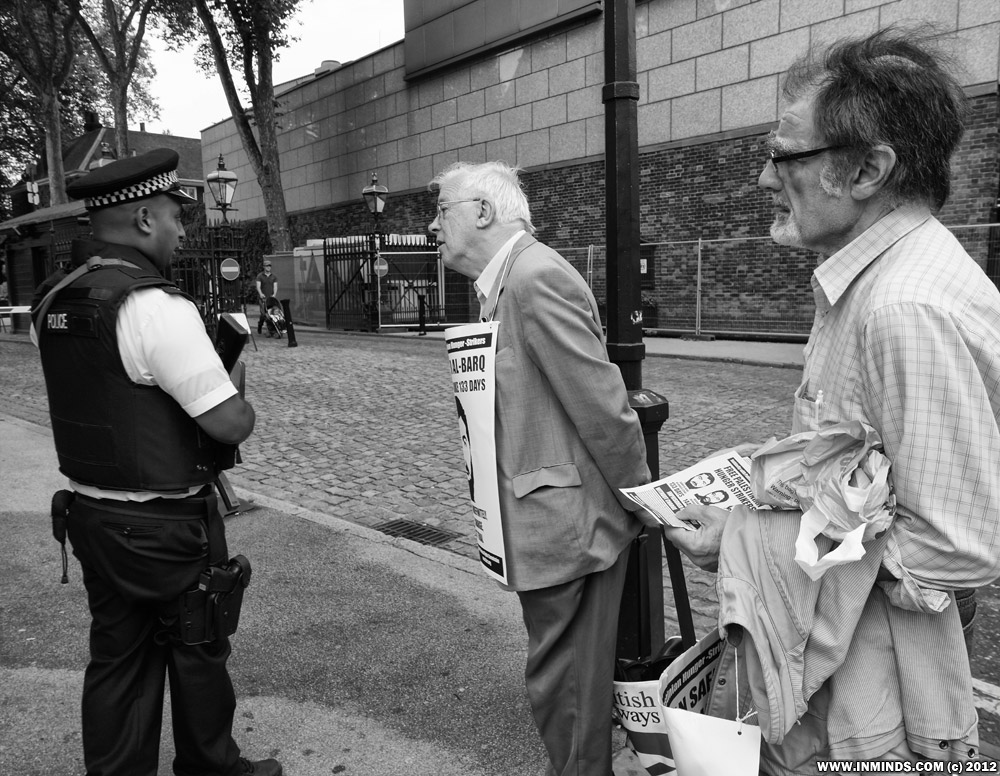 And More Police.. 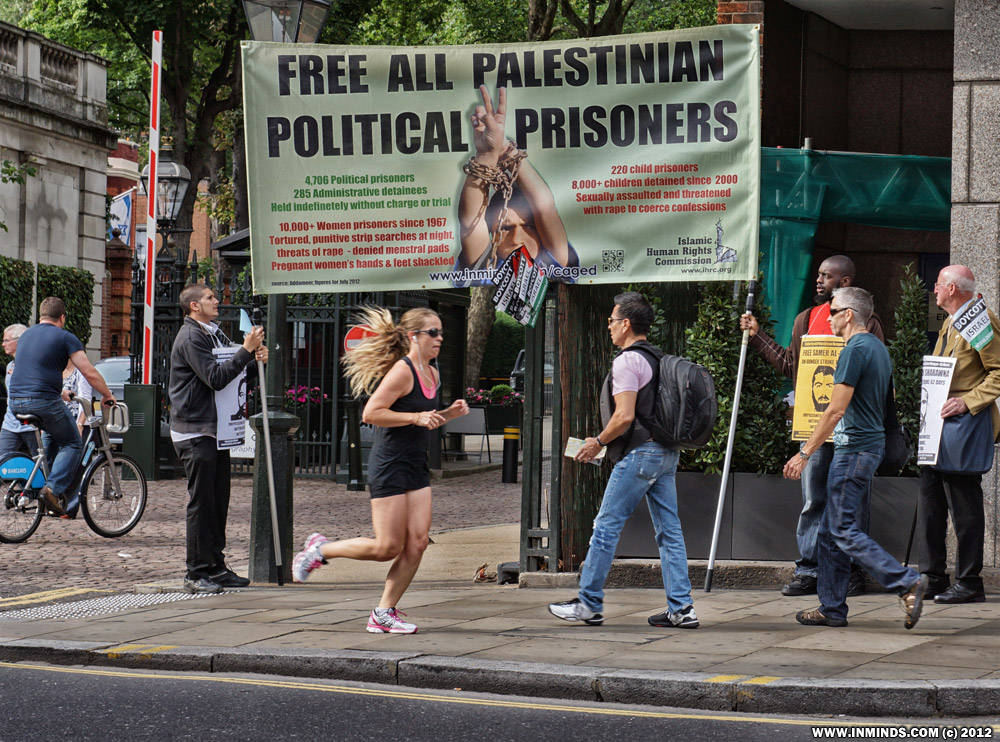 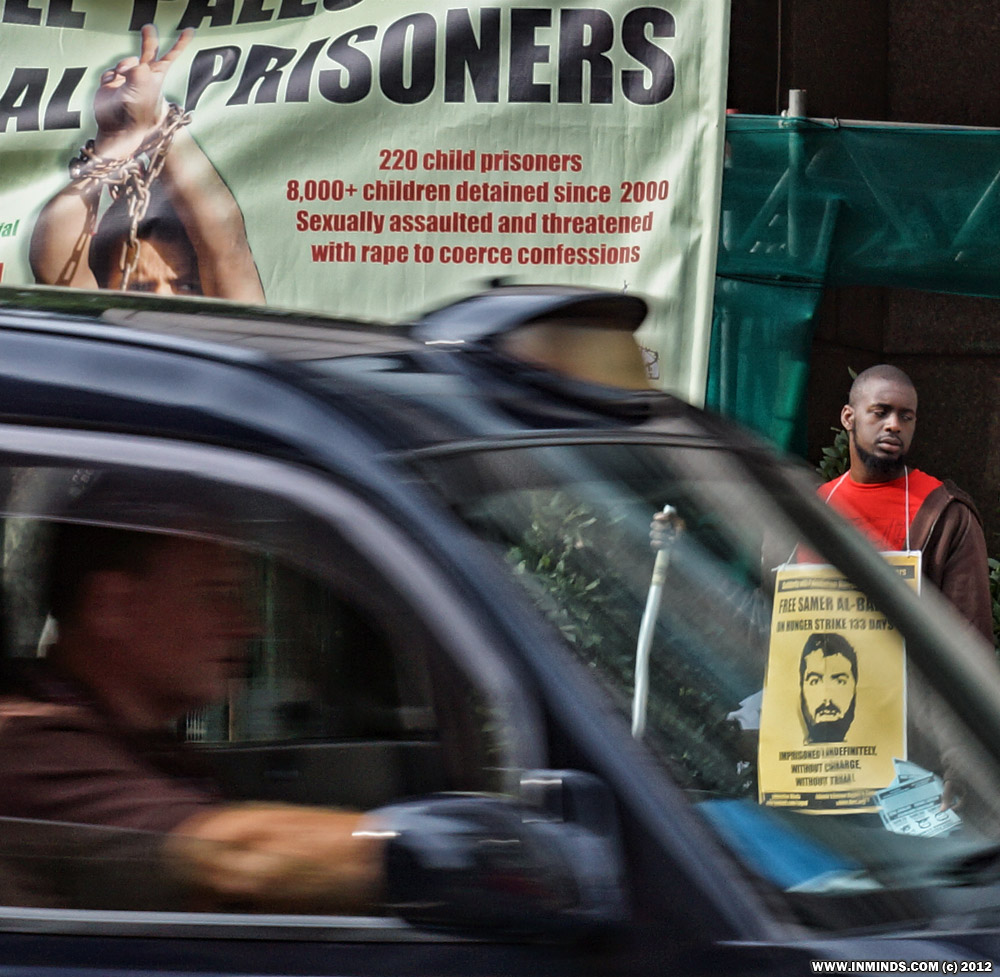 Through the traffic 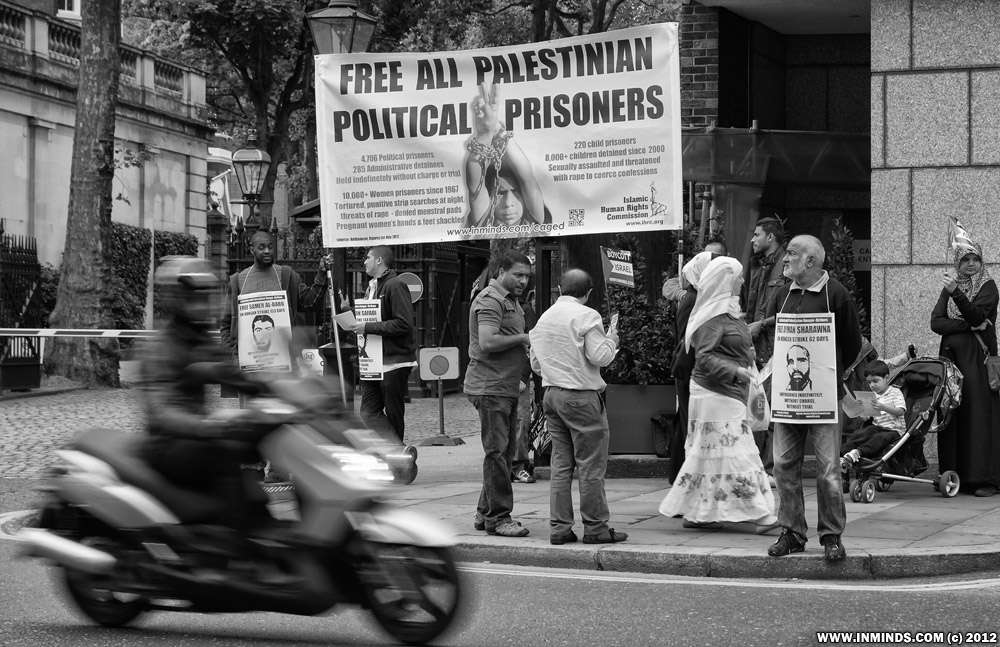 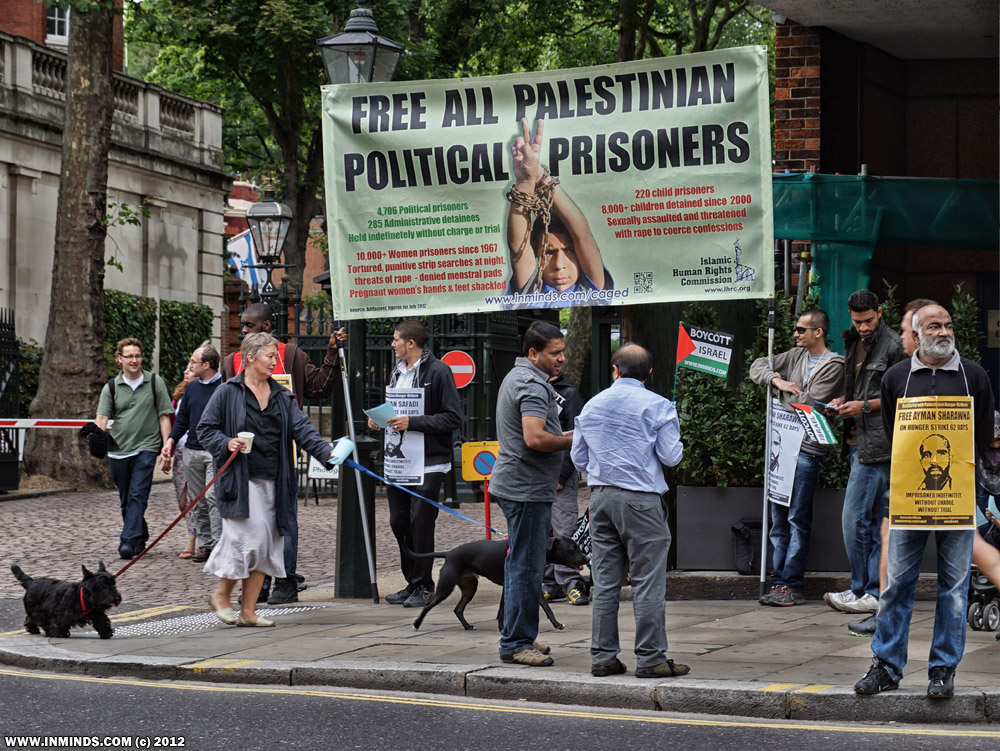 Two dogs and a coffee cup, but still enough fingers free to take a leaflet.. 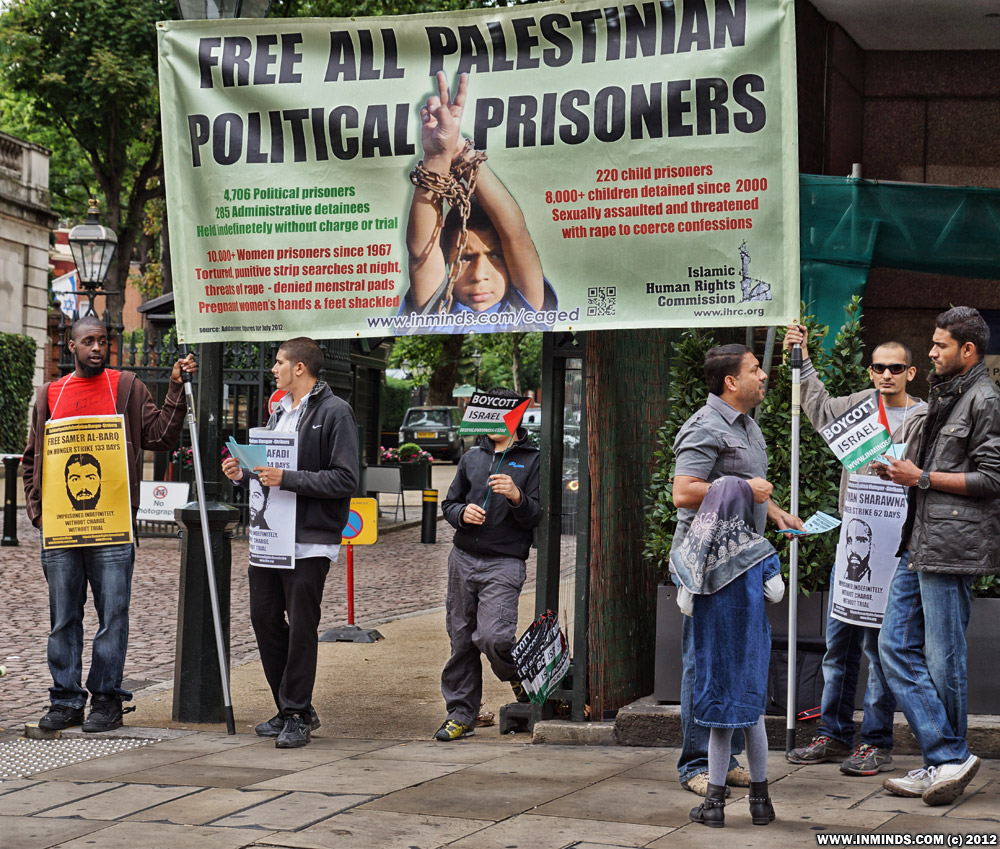
Imminent danger to lives of hunger strikers Samer Al-Barq and Hassan SafadiRamallah-Jaffa, 2 September 2012 â Addameer Prisoner Support and Human Rights Association, Al-Haq and Physicians for Human Rights-Israel (PHR-IL) fear for the lives of the three remaining Palestinian hunger strikers held by Israel. Of utmost concern are the health conditions of administrative detainees Samer Al-Barq, today on his 104th day of renewed hunger strike following his previous 30-day hunger strike, and Hassan Safadi, today on his 74th day of renewed hunger strike following his previous 71-day hunger strike. According to Addameer lawyer Fares Ziad following his visit to Ramleh prison medical clinic on 30 August, Samer was too weak to meet with him and could not get out of bed. Mr. Ziad met with Hassan and fellow hunger striker Ayman Sharawna, who is on his 64th day of hunger strike today. During their visit, Hassan told Mr. Ziad that both he and Samer had recently been taken to Assaf Harofeh hospital for a few days due to the further deterioration of their conditions and doctors informed them that their lives were under immediate threat. 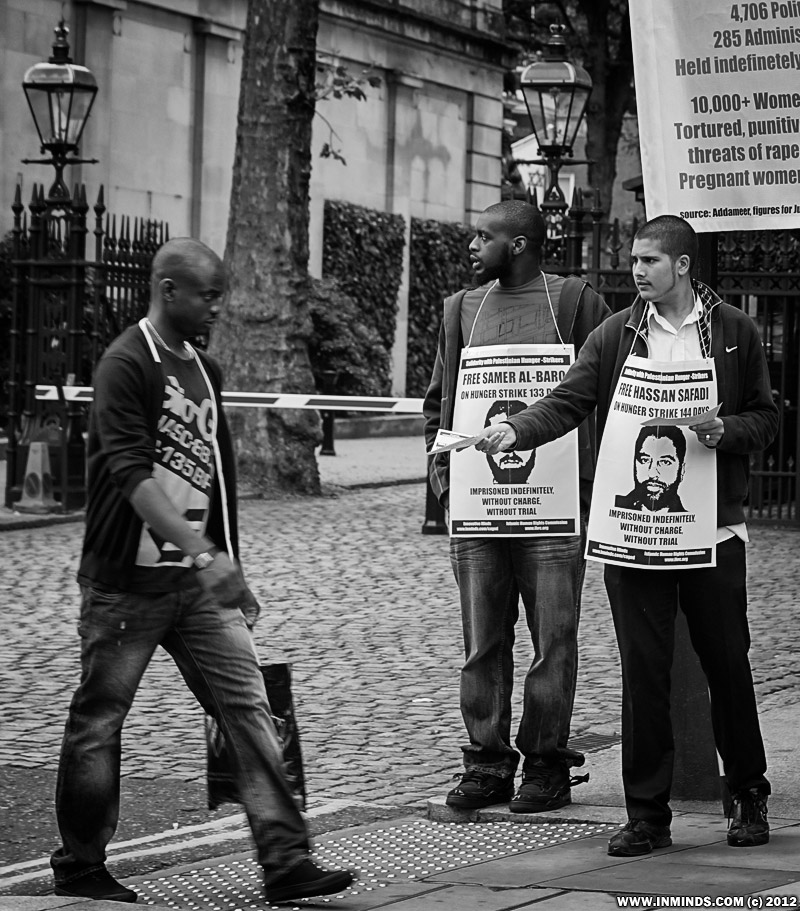 Akram Rikhawi ended his hunger strike on 22 July after 102 days, upon reaching an agreement with the IPS to be released in January 2013. Following a visit to Akram on 25 July, the PHR-IL doctor recommended Akram's immediate referral to a public hospital and to be immediately examined by a lung specialist. To date, this recommendation has not been implemented. Even more alarmingly, Akram reported that the IPS has raised his steroid dosage, which he is given as treatment for his asthma. Akramâs asthma continues to be a cause for concern and is severely unstable despite treatment with steroids. The doctor emphasized that asthma is a life-threatening illness that in the case of a major attack could lead to death. Samer is now the longest hunger striker in Palestinian history. He and Hassan have reached very critical stages in their prolonged hunger strikes, with doctors noting that they are at immediate risk of death. Nonetheless, Israel not only insists on the injustice of depriving them of their right to fair trial, but also continues to severely mistreat them, in the forms of physical brutality and psychological torture that is employed by the Israeli Prison Service (IPS) to get them to break their strikes. Despite their severe medical conditions, both Samer and Hassan are still denied family visits and access to independent physicians and independent medical care. Addameer, Al-Haq and PHR-IL are outraged by the IPSâ practice of approving visits by independent doctors only after court orders are issued, and by the Israeli District Court of Petah Tikvaâs unwillingness to order the IPS to allow frequent and consistent visits by independent doctors to hunger strikers. In light of the severe deterioration of the health conditions of the remaining Palestinian detainees on hunger strike, Addameer, Al-Haq and PHR-IL urge the international community to immediately intervene on their behalf and demand:
Src: http://www.addameer.org/etemplate.php?id=515 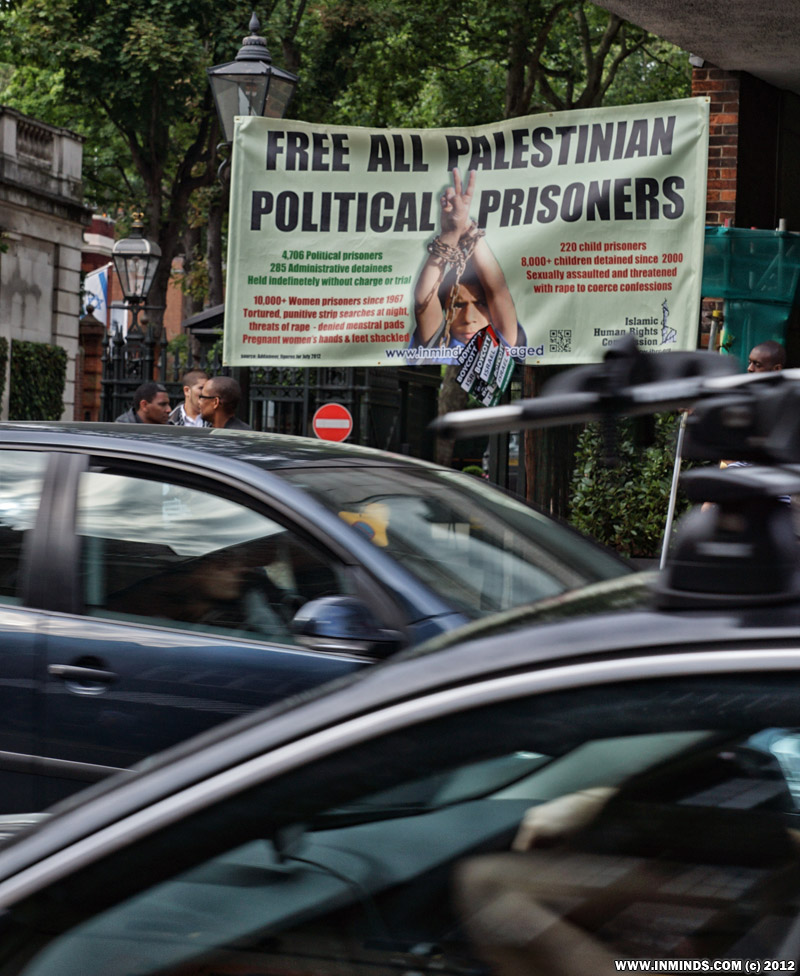 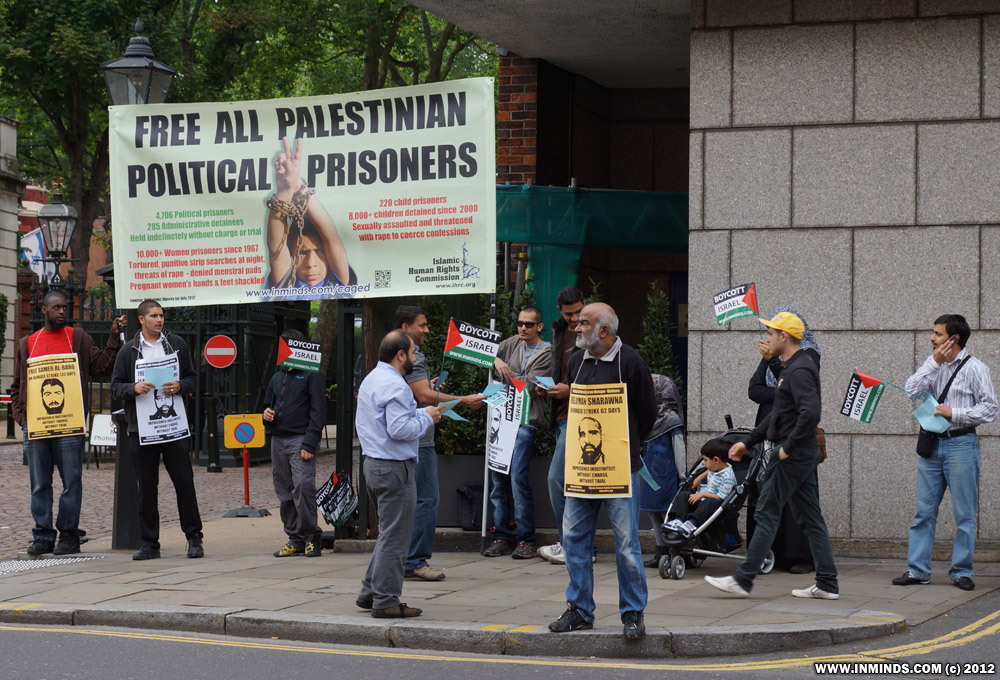 Source: inminds.com Related ArticlesAlso Of InterestPage URL: http://www.inminds.co.uk/article.php?id=10562
|
|
Support Us
If you agree with our work then please support us.Campaigns INMINDS Facebook Live Feed Latest Video's
INMINDS Twitter Feed Tweets by @InmindsComFeatured Video's
You need Flash player 8+ and JavaScript enabled to view this video.
[all videos (over 200)..] Featured MP3 Podcast  "Everywhere we went (in Gaza) the same question was on every body's lips - 'You are here but where are the Arabs?' One little girl said to me 'where is this Arab world that they teach us about in school? Where is this Ummah that they talk to us about on Fridays? Why did they leave us alone?'. That's what she said to me, with tears in her eyes 'why did they leave us alone?' I had to turn my face away from her when she said it, and I'm not an Arab, I had to turn away.. I couldn't face her in the face of such a question.." Leader of Viva Palestina aid convoy to Gaza US tour hosted by Al-Awda, April 2009 [71min / 56Mb] [all podcasts..] Newsletter Feedback |
 |
 |
































